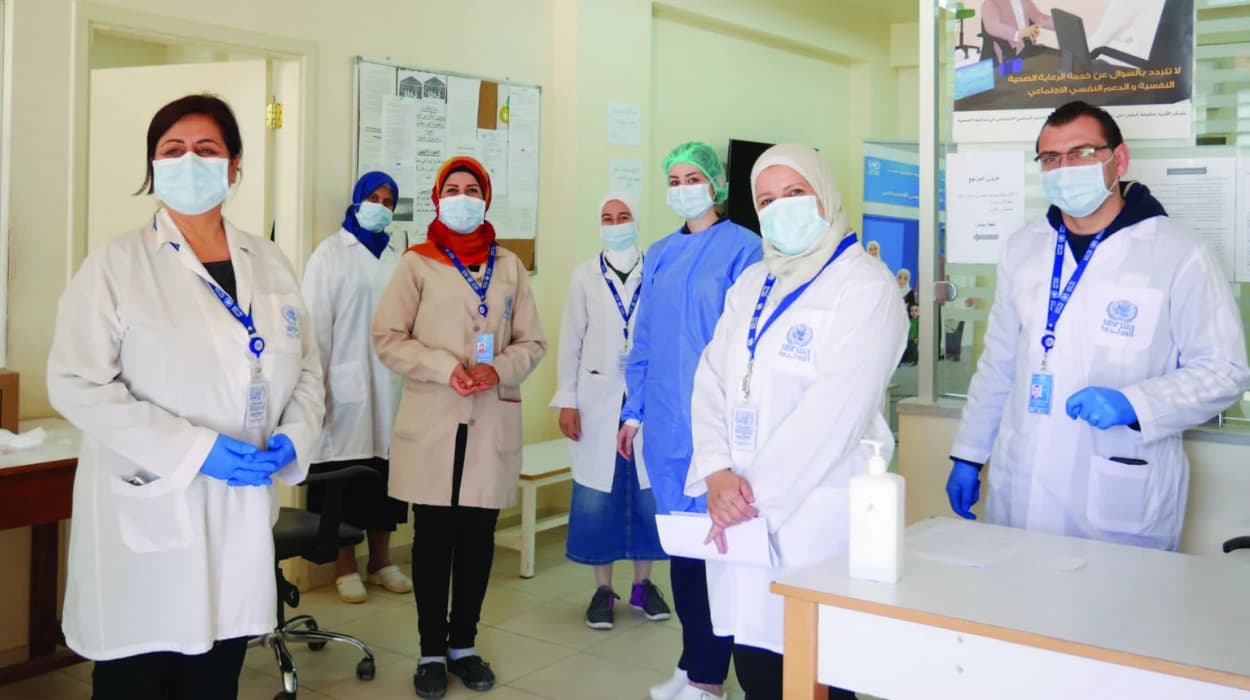UNRWA continues to provide critical humanitarian assistance
to Palestine refugees from Syria (PRS), who face severe challenges including
displacement, food insecurity, and damaged infrastructure. Despite significant
returns to camps like Yarmouk, aid dependency remains extremely high due to
ongoing instability, poverty, and limited access to services.
What Is the Current Situation of Palestine Refugees from Syria?
As reported in the United Nations Relief and Works Agency
for Palestine Refugees in the Near East (UNRWA) 2024 Syria, Lebanon, and JordanEmergency Appeal progress report, the situation for Palestine refugees in Syria
remains dire after more than 13 years of conflict. Approximately 438,000
Palestine refugees are registered in Syria, with about 40% still internally
displaced. Localized instability, economic hardships, and the threat of
explosive remnants of war continue to affect daily life. There has been a
notable return of over 11,291 Palestine refugees to camps including Yarmouk,
Ein el Tal, and Dera’a during the first half of 2024, driven largely by
unaffordable rent in displacement locations despite infrastructure being
damaged and safety risks high.
The rise in food insecurity is alarming, escalating from 46%
in 2022 to 62% in 2024 among Palestine refugees in Syria. As a result, nearly
96% of this population is dependent on UNRWA for humanitarian aid such as cash
for basic needs and medical assistance.
How Does UNRWA Support Palestine Refugees from Syria?
According to the UNRWA 2025 Emergency Appeal, UNRWA is
adapting its response to meet evolving needs amid rising regional conflicts and
economic crises. In 2025, the agency plans to provide cash assistance to over
600,000 vulnerable Palestine refugees across Syria, Lebanon, and Jordan. This
aid aims at meeting essential needs through a dignified approach. Additionally,
UNRWA will extend rapid transitional shelter support to more than 57,000
Palestine refugees displaced by recent conflicts, with another 6,800 receiving
more substantial home repair assistance under self-help schemes monitored by
UNRWA engineers.
Services provided by UNRWA encompass cash and food
assistance, education, and healthcare services in official and unofficial
Palestinian refugee camps in Syria. However, UNRWA does not manage or police
the camps, as governance remains the responsibility of the Syrian government.
Despite funding challenges forcing limited service capacity, UNRWA has been
consistently delivering cash assistance and essential services throughout the
conflict.
What Are the Challenges Faced by Returning Palestinians to Syria?
Palestinians wishing to return to areas like the Yarmouk
camp face multiple hurdles. The Syrian government has imposed security
clearances and ownership proofs before allowing returns, although many homes
remain structurally unsafe due to the war's destruction. Security concerns have
also restricted who can come back. Individuals with pending security cases or
links to armed groups have been denied return. Reports in 2023 indicated
arrests of Palestinians trying to re-enter Yarmouk without required
permissions.
Despite these barriers, an estimated 4,000 individuals
(1,200 families) had returned by June 2022, including some 800 Palestinian
families. Return movements have been mostly unofficial and limited, reflecting
continued instability and restrictive policies.
How Has the Syrian Conflict Affected the Long-Term Status of Palestine Refugees?
Palestine refugees registered in Syria are distinct in their
legal status. Most arrived before or around 1956 and enjoy rights akin to
Syrian citizens, such as freedom of movement, work opportunities, and access to
public services, though some political rights like voting are excluded. Those
arriving post-1956 are treated as foreigners with more limited employment
rights and require residence and work permits.
The protracted conflict has exacerbated poverty and
vulnerability among Palestine refugees. Figures show over 70% of the general
Syrian population require humanitarian aid, the highest number since the crisis
began. Palestine refugees face even greater challenges due to their
statelessness and legal complexities, limiting their access to assistance and
safe resettlement options.
What International Responses Are Addressing the Needs of Palestine Refugees from Syria?
International support for the Palestine refugee crisis
related to the Syrian conflict remains insufficient. While global funds pledged
to Syria in 2016 and later years reached billions, the specific needs of
Palestine refugees have often been underfunded. The UNRWA appeals highlight
gaps in funding and the risk of service interruptions, including education
closures in Lebanon where many Palestine refugees reside.
Palestine refugees from Syria have limited access to broader
UNHCR refugee programmes due to their unique legal status and lack of Syrian
nationality, impacting their ability to seek resettlement and international
protection. Some countries like Germany, the United States, Canada, and Sweden
have created resettlement schemes for this group, but numbers remain low
compared to the scale of displacement.
What Is the Future Outlook for Palestine Refugees Returning from Syria?
UNRWA continues to adapt its relief efforts amid fluctuating
security and economic conditions. The agency’s coordinated regional approach
aims to ensure continuity of essential services, shelter repairs, and emergency
cash assistance despite funding and operational challenges.
Returning Palestine refugees face a precarious existence
marked by destroyed infrastructure, security restrictions, and limited
livelihood opportunities. The situation demands persistent humanitarian
intervention combined with political solutions to address statelessness and
promote durable return or resettlement options for this vulnerable population.
